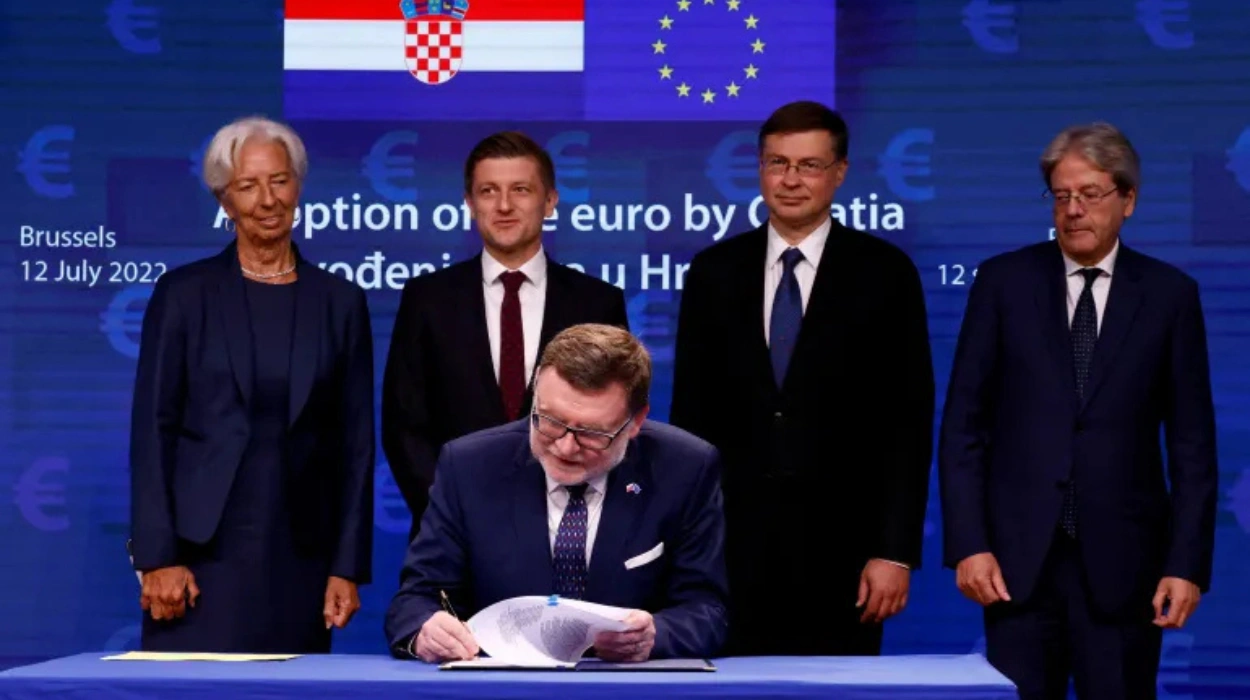US (Transatlantic Today) – As the clock strikes midnight on January 1, 2023, Croatia will officially adopt the euro and become the 20th member of the eurozone while also joining the Schengen Zone, marking a historic milestone in its European Union (EU) integration.
A Decade After EU Membership
Nearly a decade after joining the EU in 2013, Croatia is taking a major step forward in deepening its ties with Europe. The nation of four million people will retire its national currency, the kuna, in favor of the euro, aligning its economy with the broader European financial system.
A signing ceremony in Brussels, attended by key European leaders, including European Commission Vice President Valdis Dombrovskis and European Central Bank (ECB) President Christine Lagarde, solidified this transition.
Economic Stability & Inflation Concerns
Experts believe that adopting the euro will enhance Croatia’s economic stability, particularly amid rising global inflation, which has been exacerbated by Russia’s invasion of Ukraine. Approximately 80% of Croatian bank deposits are already in euros, and the currency is widely used in real estate and major transactions.
However, public opinion is divided. Some Croatians fear that switching to the euro could drive up prices, benefiting larger EU nations like Germany and France while straining local budgets. Others, like Zagreb resident Sandra Golemac, see it as a positive shift, stating, “The euro is more valuable, and we have been using it for years.”
Schengen Membership: Boost for Tourism & Trade
Croatia’s entry into the Schengen Zone, the world’s largest passport-free travel area, will allow seamless travel between member nations, benefiting businesses and tourism—an industry that contributes 20% of Croatia’s GDP.
While land border checks will be removed immediately, airport controls will continue until March 26 due to technical adjustments. Meanwhile, Croatia will maintain strict border security on its eastern frontiers with Bosnia and Herzegovina, Montenegro, and Serbia to curb illegal migration.
Looking Ahead
Croatian officials, including Prime Minister Andrej Plenković, view this dual achievement as a step toward stronger EU integration. ECB President Christine Lagarde emphasized the need for continued economic vigilance, particularly in managing inflation and ensuring long-term stability within the eurozone.
With this transition, Croatia is set to strengthen its economic and political ties with Europe, positioning itself for growth and greater financial security in the years to come.


























